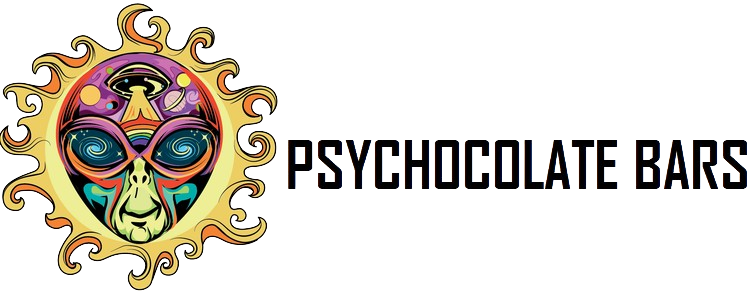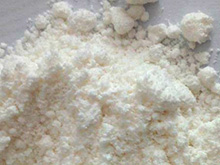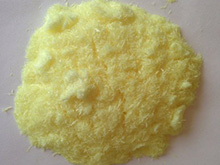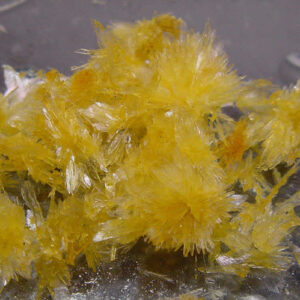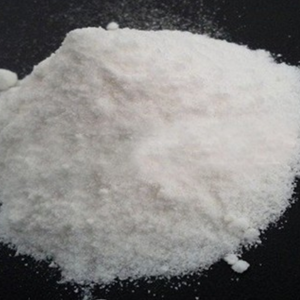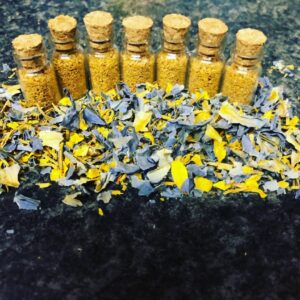DMT
DMT
DMT
DMT
DMT: How It Can Enhance Your Life
Dimethyltryptamine (DMT) is a powerful and intriguing psychoactive compound that has garnered significant attention for its unique effects and potential benefits. Known for its profound and often mystical experiences, DMT has been used in traditional spiritual practices and is now being explored for its potential to enhance mental health, personal growth, and overall well-being. This comprehensive guide delves into how DMT can enhance your life, exploring its benefits, uses, risks, and considerations for those interested in this fascinating substance.
1. Introduction to DMT
DMT, often referred to as the “spirit molecule,” is a naturally occurring psychedelic compound found in various plants and animals. Its use spans from ancient spiritual rituals to modern scientific research, highlighting its profound effects on consciousness and perception.
1.1 What is DMT?
Dimethyltryptamine is a tryptamine alkaloid that is chemically similar to serotonin, a neurotransmitter involved in mood regulation. It is known for inducing intense and often visionary experiences.
- Chemical Structure and Classification: DMT is classified as a tryptamine and shares structural similarities with other psychedelics, such as psilocybin and LSD. It is renowned for its powerful psychoactive effects.
- Forms of DMT: DMT can be found in various forms, including a crystalline powder, a freebase form, or as a component of traditional brews like Ayahuasca.
1.2 Historical and Cultural Use
DMT has been used for centuries in indigenous cultures for spiritual and healing purposes. Its use in traditional practices reflects its deep cultural significance and the transformative experiences it can facilitate.
- Traditional Use in Ayahuasca: In South American shamanic traditions, DMT is a key component of Ayahuasca, a ceremonial brew used to induce visionary states and facilitate spiritual healing.
- Indigenous Rituals: Various indigenous tribes have used DMT-containing plants in rituals and ceremonies to connect with the spiritual realm and gain insights into the nature of existence.
1.3 Modern Research and Popularity
In recent decades, DMT has gained attention in the Western world for its potential therapeutic applications and its role in expanding our understanding of consciousness.
- Scientific Research: Modern research is exploring DMT’s effects on the brain, consciousness, and its potential therapeutic uses. Studies are investigating its impact on mental health, addiction, and spiritual well-being.
- Growing Popularity: The increasing interest in psychedelics and their potential benefits has led to a resurgence in the exploration of DMT and its applications.
2. How DMT Works
To understand how DMT can enhance your life, it is essential to grasp its mechanisms of action and its effects on the brain and consciousness.
2.1 Mechanism of Action
DMT primarily acts on serotonin receptors in the brain, leading to its profound psychoactive effects.
- Serotonin Receptor Interaction: DMT binds to serotonin receptors, particularly the 5-HT2A receptor, which plays a role in mood, perception, and cognition. This interaction contributes to its psychedelic effects.
- Psychedelic Effects: The activation of serotonin receptors by DMT leads to alterations in sensory perception, emotional experience, and cognitive processes.
2.2 Effects on the Brain
DMT induces a range of cognitive, emotional, and perceptual changes that can lead to transformative experiences.
- Altered Perception: Users often experience changes in visual and auditory perception, including vivid hallucinations, geometric patterns, and a sense of time distortion.
- Enhanced Self-Awareness: DMT can lead to profound insights into one’s self and existence, often facilitating a heightened sense of self-awareness and introspection.
2.3 Differences from Other Psychedelics
DMT’s unique effects and mechanisms of action set it apart from other psychedelics like psilocybin and LSD.
- Short Duration: DMT’s effects are typically shorter in duration compared to other psychedelics, often lasting between 15 to 60 minutes, depending on the method of consumption.
- Intensity of Experience: DMT is known for inducing highly intense and immersive experiences, often described as otherworldly or mystical.
3. Benefits of DMT
DMT offers a range of potential benefits, from enhancing personal growth to supporting mental health and spiritual well-being.
3.1 Personal Growth and Self-Awareness
- Introspective Insights: DMT can facilitate deep introspection and self-reflection, helping individuals gain a better understanding of their thoughts, emotions, and life experiences.
- Personal Transformation: Many users report experiencing profound personal transformation and a shift in perspective, leading to positive changes in behavior and outlook on life.
3.2 Mental Health and Emotional Well-Being
- Depression and Anxiety: Some research suggests that DMT may have potential therapeutic benefits for individuals struggling with depression and anxiety. Its effects on serotonin receptors may contribute to mood regulation and emotional stability.
- Trauma Processing: DMT’s introspective and visionary effects can aid in processing and integrating traumatic experiences, offering potential benefits for individuals with PTSD and related conditions.
3.3 Spiritual and Mystical Experiences
- Spiritual Insight: DMT is often associated with mystical and spiritual experiences, providing users with a sense of connection to a higher power or the universe.
- Enhanced Sense of Unity: Users frequently report a profound sense of unity and interconnectedness, contributing to a deeper understanding of their place in the cosmos.
4. How to Use DMT Safely
Using DMT safely involves understanding its dosage, administration methods, and potential risks.
4.1 Dosage and Administration
- Medical Supervision: DMT should be used under the guidance of a qualified healthcare professional, especially in therapeutic or clinical settings. Dosage and administration methods should be tailored to individual needs and goals.
- Methods of Use: DMT can be consumed in various ways, including smoking or vaporizing the crystalline form, drinking Ayahuasca, or using synthetic DMT in a clinical setting.
4.2 Recommended Dosage
- Standard Dosage: The dosage of DMT can vary depending on the method of administration. Typical dosages for smoked or vaporized DMT range from 20 to 60 milligrams, while Ayahuasca preparations may contain varying concentrations of DMT.
- Adjustments and Titration: Dosages should be adjusted based on individual tolerance and experience. Healthcare professionals can help determine the appropriate dosage for therapeutic use.
4.3 Potential Side Effects and Risks
- Common Side Effects: DMT can cause side effects such as nausea, dizziness, and increased heart rate. These effects are typically transient and resolve after the experience.
- Serious Risks: Serious risks associated with DMT use include potential psychological distress, interactions with other medications, and the risk of exacerbating underlying mental health conditions. Regular monitoring and support are essential.
5. DMT for Personal and Spiritual Growth
DMT’s potential for personal and spiritual growth is a significant aspect of its appeal, offering transformative experiences and insights.
5.1 Enhanced Self-Awareness
- Introspective Journeys: DMT’s introspective effects can lead to profound self-discovery and personal growth. Users may gain insights into their behavior, emotions, and life goals.
- Behavioral Change: Many individuals report positive changes in behavior and outlook as a result of their DMT experiences, including increased empathy, compassion, and mindfulness.
5.2 Spiritual Exploration
- Mystical Experiences: DMT is often associated with mystical and spiritual experiences, providing users with a sense of connection to a higher power or the divine.
- Spiritual Insights: Users frequently report experiencing profound spiritual insights and a heightened sense of purpose, contributing to their overall spiritual well-being.
6. Legal and Ethical Considerations
The legal status and ethical considerations of DMT are important for ensuring responsible and informed use.
6.1 Legal Status
- Regulation and Prescription: DMT is classified as a Schedule I controlled substance in many countries, including the United States, making it illegal to manufacture, distribute, or possess without proper authorization.
- International Regulations: The legal status of DMT varies internationally. Research the regulations in your country or region before considering its use.
6.2 Ethical Considerations
- Responsible Use: Ethical use of DMT involves ensuring that it is used for legitimate purposes and under the supervision of qualified professionals. Respect for the substance and its potential effects is crucial.
- Informed Consent: Individuals should be fully informed about the potential risks and benefits of DMT use and provide informed consent before undergoing any therapeutic or experimental treatments.
7. Personal Stories and Testimonials
Personal stories and testimonials provide valuable insights into the experiences of individuals who have used DMT.
7.1 Healing and Transformation
Many users report significant personal and spiritual transformation as a result of their DMT experiences. Stories of overcoming personal challenges, gaining new perspectives, and achieving spiritual growth illustrate the transformative potential of DMT.
7.2 Overcoming Challenges
Testimonials often highlight the challenges individuals have faced while using DMT, including managing intense experiences and integrating insights into daily life. These stories offer valuable lessons and advice for those considering DMT.
8. Future Directions and Research
Ongoing research and developments in the field of DMT therapy may reveal new applications and benefits.
8.1 Advances in Scientific Research
- Clinical Trials: Ongoing clinical trials are exploring DMT’s potential for treating various mental health conditions, including depression, anxiety, and PTSD. Research aims to enhance our understanding of its efficacy and safety.
- Neurobiological Studies: Studies are investigating DMT’s effects on brain function and neurotransmitter systems, providing insights into its mechanisms of action and therapeutic potential.
8.2 Innovations in DMT Therapy
- New Formulations: Researchers are developing new formulations and delivery methods for DMT to improve its efficacy and safety in therapeutic settings.
- Combination Therapies: Studies are exploring the potential benefits of combining DMT with other therapies, such as psychotherapy or behavioral interventions, to enhance treatment outcomes.
9. Conclusion
DMT offers a range of potential benefits, from personal and spiritual growth to therapeutic applications for mental health conditions. By understanding its effects, benefits, and risks, you can make informed decisions about whether DMT is a suitable option for enhancing your life.
10. Call to Action
If you are considering DMT therapy, consult with a qualified healthcare professional to discuss your options and determine if DMT is right for you. Educate yourself about the treatment process, potential side effects, and best practices for safe use. By approaching DMT with knowledge and responsibility, you can harness its potential to improve your well-being and quality of life.
